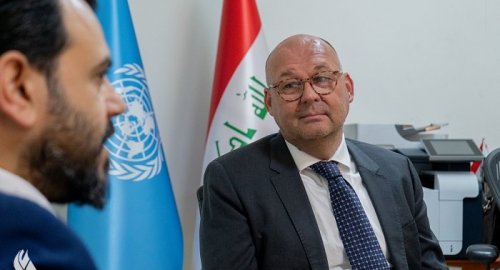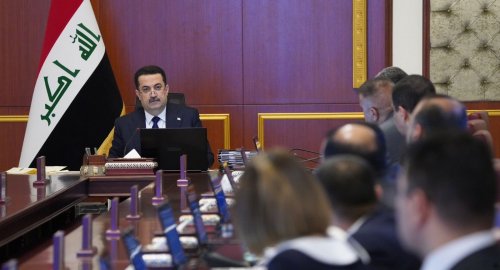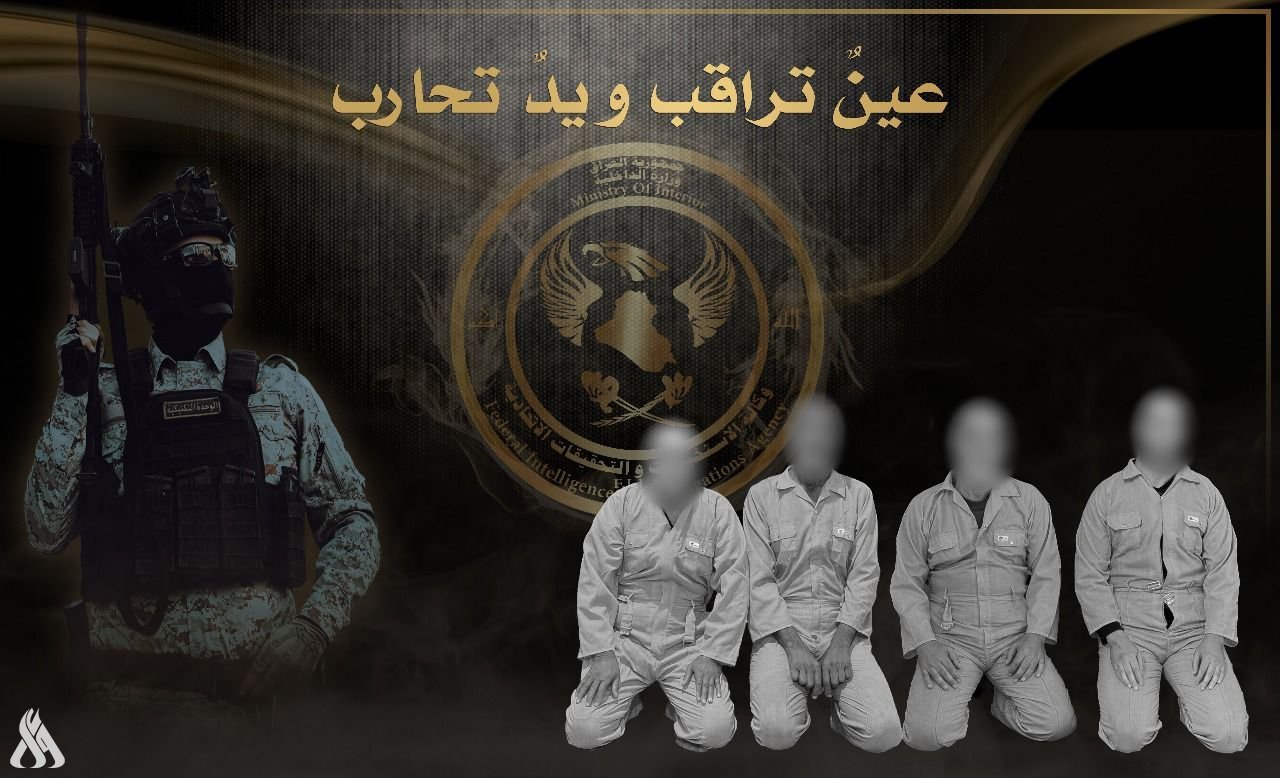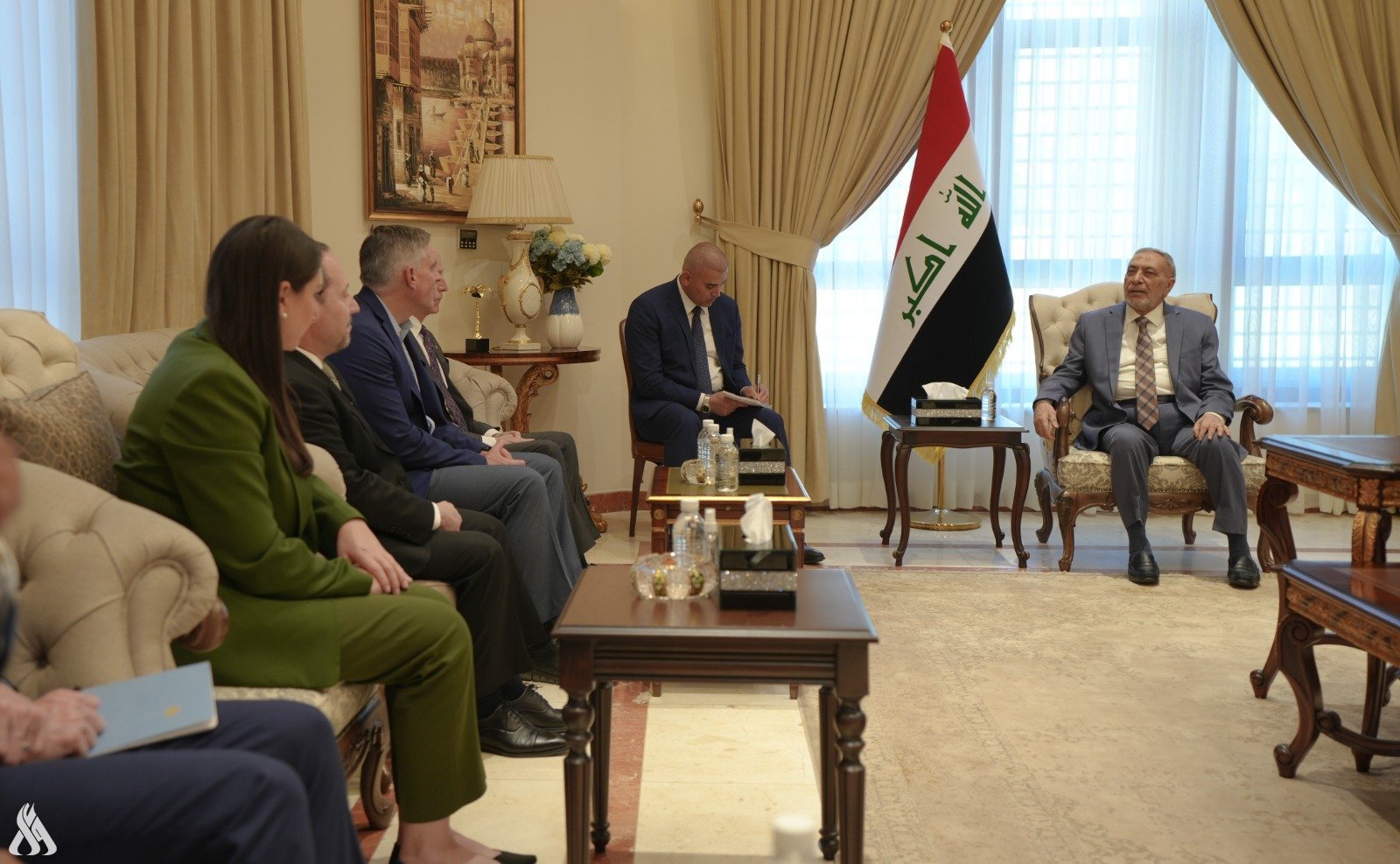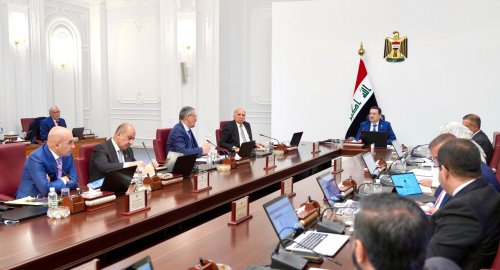
The Cabinet Holds its 1st Regular Session Chaired by PM Al-Sudani

- 8-01-2025, 06:00
Baghdad-INA
Prime Minister Mohammed S. Al-Sudani chaired today, Tuesday, the 1st regular session of the Council of Ministers for the New Year. The session included discussions on the general situation in the country, important files, and priorities of the government program, as well as deliberations on the items listed on the agenda and necessary decisions.
The Media Office of The Prime Minister stated in a statement, received by the Iraqi News Agency-INA,“At the beginning of the session, the Prime Minister expressed his hope for continued government efforts to serve the people and fully implement the government program, emphasizing the importance of precise execution of all details. He noted several positive indicators in the government’s work, particularly its ability to address challenges through teamwork and legislative and oversight support, resulting in 1,148 decisions and directives across 53 regular sessions and one extraordinary session”.
The Prime Minister also reviewed significant milestones in the history of the Iraqi Army, especially post-2003, on the occasion of its 104th anniversary. He highlighted that Iraq’s current security and stability were achieved through the sacrifices of the armed forces, underscoring the army’s fundamental role in maintaining the political system and supporting government efforts in administrative and economic reform and state-building.
The Prime Minister further highlighted the role of the Iraqi Police, as preparations are underway to celebrate its founding anniversary on January 9. He noted the police’s ongoing presence and contributions across all formations in both security and service roles over the years, ensuring daily life flows smoothly across Iraq.
The Prime Minister reiterated the government’s commitment to providing all necessary armament, technical support, and operational needs for the security forces, particularly the army and police, while ensuring their duties are carried out in line with constitutional principles and human rights. He stressed that law enforcement must always adhere to these principles and praised the efforts of personnel in the Ministries of Defense and Interior.
The Council of Ministers then proceeded to review and approve several decisions presented:
In the context of assessing ministries and non-ministerial entities regarding the shift towards electronic payments, automation, and digitization, the Prime Minister directed the following:
1. Analyzing and measuring progress in ministries’ and government institutions’ adoption of automation and electronic payment, with a performance comparison to previous years.
2. Employing a precise methodology for collecting data on adoption rates, completed transactions, obstacles, and success factors.
As part of ongoing efforts to generate energy from waste, the Council approved:
1. Granting an investment license for a high-efficiency waste-to-energy power plant in Baghdad on a portion of plot No. (43626/1, District 3, Nahrawan) to SHANGHAI SUS ENVIRONMENT CO. LTD., under the Investment Law (No. 13 of 2006, as amended).
2. Authorizing the National Investment Commission to issue the investment license and sign the investment contract jointly with sectoral entities involved in the project’s inputs and outputs, including the Ministries of Health, Electricity, and Environment, and Baghdad Municipality. The commission will coordinate with the Ministry of Foreign Affairs to verify the company’s documents before awarding the project.
In the agricultural sector, the Council of Ministers approved the second amendment to the Agricultural Loan Fund Facilitation Law (No. 28 of 2009), reviewed by the State Council, and referred it to the Parliament.
Regarding school infrastructure, the Council of Ministers approved financing for furnishing the project to build 1,000 model schools under the Iraq-China Framework Agreement, as follows:
1. Allocating the required funds for furnishing the schools by transferring amounts from the petrodollar allocations for the provinces of Basra, Maysan, Kirkuk, and Wasit to fully cover the furnishing costs in these provinces. The remaining funds for other provinces will be transferred similarly, amounting to 113.917565 billion dinars to the account of the General Secretariat of the Council of Ministers.
2. Allocating 17.426690 billion dinars from the emergency reserve to the General Secretariat of the Council of Ministers to cover the remaining furnishing costs for other provinces.
3. Utilizing approximately $75 million remaining under the Iraq-Turkey Agreement (BTA) to procure school furniture in coordination with the Turkish side. The General Secretariat of the Council of Ministers will handle contracting and coordination.
4. Authorizing the General Secretariat of the Council of Ministers to invite direct offers and contract for the full amount, exempting it from government contracting procedures (No. 2 of 2014), provided that contracts include a clause stating they will only become effective upon availability of financial allocations.
5. Allocating 15 billion dinars from the emergency reserve for equipping smart schools (50 schools, 24 classrooms each), with the National Projects and School Buildings Directorate authorized to proceed with contracting under the same exemption.
To complete stalled and delayed projects, the Council approved increasing the contingency allocation and total cost for the project to develop and pave roads in Al-Zohour Subdistrict, Baghdad, listed in the Ministry of Construction, Housing, Municipalities, and Public Works’ investment budget.
In the energy sector, the Council of Ministers approved allocating and expropriating lands for the Bin Omar Gas Field Investment Project in favor of South Gas Company, based on coordinates established by the Ministry of Oil. The lands will be used for setting up gas processing and production units, expediting gas investment, and reducing environmental pollution caused by gas flaring.
Regarding hospital projects, the Council approved the recommendations of the 39th meeting of Diwani Order Committee No. 45 of 2018 to finalize public hospital projects. This includes signing an additional contract for Al-Hawraa Maternity and Children’s Hospital in Al-Shatrah, Dhi Qar, assigning the current contractor to supply medical equipment and furniture.
In the aviation and revenue enhancement sector, the Council of Ministers approved:
1. Amending Article (1) of the Civil Airport Fee System (No. 6 of 2018) to revise fees for non-scheduled flights, airspace usage, and related services.
2. Amending Article (11/First) of the aforementioned system to adjust the distribution of airspace usage fees, with 60% allocated to the Ministry of Transport and 40% to the state treasury.
3. Allocating 10% of air navigation revenue to the Ministry of Transport for purchasing modern equipment and machinery.
The Council of Ministers authorized the head of the Iraqi Civil Aviation Authority to negotiate and sign an air transport agreement with Armenia, with the Ministry of Foreign Affairs preparing the necessary authorization documents.
The Council of Ministers also approved exempting the 10% investor share from public bidding requirements in line with Council of Ministers Decision No. 245 of 2019, as amended by Decision No. 23374 of 2023.
The Council of Ministers made additional decisions, including:
1. Granting financial and administrative powers to the head of the national team for renewable energy and energy efficiency projects.
2. Including the Counter-Terrorism Service in reduced fuel pricing at official rates.
3. Approving the recommendations of Diwani Order Committee No. 28 of 2020 regarding the regulation of Arab unions and organizations operating in Iraq.
4. Approving the agreement with Vietnam to settle its outstanding debt to Iraq, amounting to $34.867534 million, in two equal semi-annual installments.
Duhok of Iraq and Qadsia of Kuwait match kicks off
- Sport
- 25/04/15
Four Daesh terrorists detained in Salahuddin
- Security
- 25/04/14
Two ISIS hideouts destroyed, killing those inside in Salah al-Din
- Security
- 25/04/13
